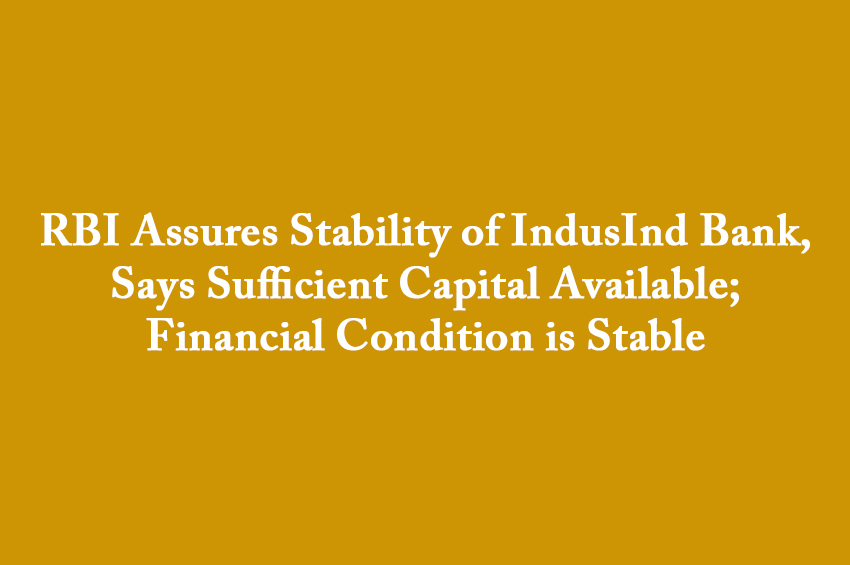Winning Bizness Desk
Mumbai. The Reserve Bank of India (RBI) has confirmed that IndusInd Bank has adequate capital and remains financially stable. The statement, issued on March 15, comes in response to concerns raised after the bank disclosed discrepancies in its derivatives portfolio on March 10. Following this revelation, IndusInd Bank’s stock plummeted by 27% on March 11, sparking fears about its financial health. However, RBI reassured depositors that there is no cause for concern. As of December 2024, IndusInd Bank’s Capital Adequacy Ratio (CAR) stood at 16.46%, while its Provision Coverage Ratio (PCR) was 70.20%. Additionally, its Liquidity Coverage Ratio (LCR) was at 113% on March 9, exceeding the regulatory requirement of 100%.
Steps Taken by the Bank
To address the issue, IndusInd Bank has appointed an external audit team to review its systems and assess potential losses from the discrepancies in its derivatives portfolio. RBI has directed the bank’s management and board to implement corrective measures and keep stakeholders informed. Experts suggest that this reassurance from RBI is aimed at preventing panic among depositors and investors. The central bank has a history of intervening in banking crises, having taken timely measures to safeguard banks like Yes Bank (2020), RBL Bank (2021), and Global Trust Bank (2024).
Stock Market Impact and Discrepancy Details
Following the announcement of discrepancies in its forex transactions and hedging costs, IndusInd Bank’s shares fell by 27% on March 11, dropping ₹243 to ₹656.80. However, the stock saw some recovery, closing at ₹672.65 on March 13. The internal review found that the bank had underestimated hedging costs related to past foreign exchange transactions, potentially reducing its net worth by ₹1,600-2,000 crore (2.35%). The discrepancies were identified between September and October 2024 after RBI updated its guidelines on derivatives.
Derivative Portfolio and Bank’s Response
Derivatives are financial contracts whose value depends on underlying assets or benchmarks. These instruments, including options, swaps, and forward contracts, are widely used for hedging risks or speculation. Given the concerns over compliance and internal controls, IndusInd Bank has launched a detailed internal review and appointed an external agency to validate its findings.
Profit Decline in Third Quarter
IndusInd Bank, the fifth-largest private sector lender in India, reported a net profit of ₹1,402.33 crore in Q3 of FY 2024-25, marking a 39% decline from ₹2,301.49 crore in the same period last year. However, the bank’s total revenue grew by 8.5% to ₹15,155.80 crore compared to ₹13,968.17 crore in the previous year’s quarter. The decline in profit is attributed to rising expenses.


